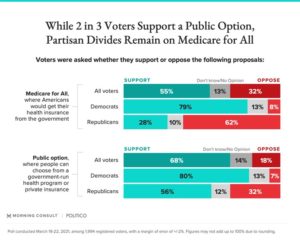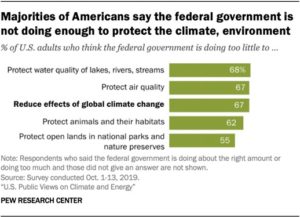Marty Levine
November 7, 2021
In 1962 Michael Harrington published “The Other America: Poverty in the United States” and showed us the painful underbelly of our free-market economy and the failure of the limited “safety net” we had put in place. That was the same year that Rachel Carson published “Silent Spring” warning us about the consequences of the harm we were doing to our environment. In 1963 Martin Luther King shared his dream of a nation that would finally overcome its legacy of racial oppression. In 1968 Walter Cronkite woke the nation up to the tragedy of the Viet Nam war and the fallacy of our militarized foreign policy.
At the time, each of these events was seen as an inflection point that would change the course the nation was following leading along the arc of a moral universe as it led upward. Each was seen as providing the impetus for our nation to make the necessary corrections that would erase past failures and improve the lives of those who had been their victims.
I know we can point to an extensive list of accomplishments to demonstrate this progress. In 1964 we passed the Civil Rights Act and launched the Food Stamps program. In 1965 we passed the Voting Rights Act and launched Medicaid. In 1970 the Environmental Protection Agency was created. In 1973 we ended the draft. In 2010 we passed the Affordable Care Act (ACA). That same year the Supreme Court recognized the right of women to control their own bodies. We pat ourselves on the back for the work we did and smile contentedly about how this is a better country for all.
We say that our progress has been slow, but it has been steady. We consistently point to the polling data that tells us we are not alone and that our nation wants us to make even more progress. Most Americans favor providing health care for all.

Most Americans want a fairer tax system and want corporations and wealthy individuals to pay their fair share of government taxes. Most Americans want the government to do more about the climate crisis.

Most Americans want to take on America’s lingering racism. According to the Brookings Institute, “it’s not 1968 anymore. A large share of white Americans now endorses views on race relations once confined largely to African Americans…This helps explain…why 53% of Americans say that relations have gotten worse “
Yet, how wrong we are. The incremental steps we have taken have helped some but have skirted the core problems and the systemic issues that damage lives. With each step forward we seem to take at least one backward. With each step forward the next one seems so much harder to accomplish.
Despite the progress we think we have made, the wealth gap continues to grow wider and what was once a growing middle class is being hollowed out. 27.5 million Americans remain with no medical insurance and millions more struggle to afford or be able to access the care they need. Schools remain as racially and economically segregated as they were when Dr. King inspired us with his dream. Voting rights are being slashed and ballot access gains reversed. The environment is reeling, and we are facing serious impacts as we watch our seas rise and our climate changes.
The progress we have made came from policies that focused on the symptoms and not the causes. Making systemic change has been impossible not because we are unable to image solutions nor because the wealthiest nation in the world cannot afford their cost but because we cannot marshal the political will to pass the laws and policies that we need.
We are stuck on a treadmill because too many of us are unwilling to see our lives change. Too many of us are unwilling to give up the advantages and privileges we have amassed. We suffer, as a nation, from a case of NIMBY (not in MY back yard.)
On every issue we find ourselves stymied and surprised when polls do not translate into political action. We want to make needed changes if they do not affect us personally. We can solve the climate crisis if it does not require me to drive less, use mass transit or change my light bulbs. We are all for clean energy but not if it is my job that must change. We are for dealing with racism if it does not require my school or neighborhood to change.
It is easy to blame the most conservative Americans for the morass we are stuck in. Many reject the very premise that there are societal ills that need solving. They passionately believe that we are on our own. They passionately believe that we succeed if we try hard enough and fail because we do not. They reject problems that they find threatening or blame them on a government being too involved in their personal lives.
It is easy to focus our attention and anger on them. They provide Facebook memes that we can share and laugh about. It is easy to roll our eyes and curse about stories of people protesting mask-wearing or posting lists of books to be banned. It gives an enemy who is not us.
But they are not the real barrier to the progress we need.
White, successful folks who see themselves as liberals are.
In 1966 folk singer Phil Ochs introduced a song he was about to sing with these words, “ In every American community there are varying shades of political opinion. One of the shadiest of these is the liberals. An outspoken group on many subjects, ten degrees to the left of center in good times, ten degrees to the right of center if it affects them personally.” And then he sang “Love Me I’m A Liberal,” with lyrics like I cried when they shot Medgar Evers…And I love Puerto Ricans and Negros as long as they don’t move next door…”
Stopping the progress toward real solutions that we must create are the many “liberals” who want change only if they do not need to change. They are ready to loudly raise their voices in support of progressive ideas and policies. They are ready to cheer on protesters and politicians. They are among those who make up the majority on those polls about health care and climate change. But when it comes to action, they have a long list of reasons that we should slow down and not do too much too fast.
The 2020 election Illinois ballot gave voters a chance to amend the State’s constitution to create a more equitable state income tax system. It failed because wealthy, white “liberal communities” found reasons to vote no. Many who proudly voted for the Democratic slate voted against the Fair Tax proposal that had been put forward by the Democratic Party as a step toward creating a more equitable system. Their pocketbook spoke louder than their “principles.”
In analysis the recent election for Virginia Governor we find that key swing votes, those white “liberals” who could support Joe Biden one year ago but now saw a conservative Governor as their choice, were voting because the threat of confronting racism touched too close to their homes. William Saletan, in an analysis for Slate, pointed this out, “The network exit poll, released on Nov. 2, showed the same pattern. Youngkin got62 percent of the white vote and 13 percent of the Black vote, a gap of 49 points. But among voters who said parents should have a lot of “say in what schools teach”—about half the electorate—he got90 percent of the white vote and only19 percent of the Black vote, a gap of 71 points.” The ad Youngkin ran featuring a White mother’s anguish about her son being assigned to read Toni Morrison’s “Beloved” worked because it tapped the emotions raised when the change comes too close to home and demands introspection and honesty.
The criticalness of these “liberal” swing voters is illustrated by The Economist’s analysis of last week’s election results. The Democratic Party’s “unpopularity with non-college-educated whites costs them large tracts of the country outside cities and suburbs. To win the electoral college, the House of Representatives, and the Senate they need a greater share of the raw vote than any party in history. Winning under these conditions, while simultaneously repairing national institutions and making progress on America’s problems, from public health to climate to social mobility, is a task for a politician of superhuman talents.”
We hear often of the difficulty of holding hard, political conversations with conservative friends and family members. Those conversations are not where the focus must be. It is with our” liberal” friends that we need to have hard conversations. It is time to ask them to do more than talk. It is time to ask them to step forward and demand the policies that will hurt them but help us all, to make their own lives less comfortable for the common good.
If their words continue to be hollow, then we are very wrong about how we can create a better future. We will remain stuck and the voices of the most regressive will be the voices that prevail. They will be able to keep these “liberals” comfortable enough to let them maintain their fantasy that they are on the side of the angels and that the arc of progress inevitably leads to the promised land.
The fear of losing those relationships is not just personal. Pragmatic progressives are willing to pull back from the push for systemic change because they fear losing the support of troubled “liberals.” Al Sharpton was direct about this need to pull back in comments reported by the Washington Post. “We’re going to have to engage more methodically and strategically in the process because we could lose it all,” he said. “We’ve got to really bring everybody together and understand that this is a wake-up call and those really committed to voting rights and police reform need to deal with it in a practical way.”
That is the same “wise” council experienced liberals have been giving since Phil Ochs took the stage. I am no longer sure it is wise council. It sounds appealing but it ignores the reality of so many lives, lives that have remained vulnerable and risky despite all our claims of improvement. It ignores the science that tells us we cannot be patient about Global Warming. It ignores the reality that while we do so little for those with the least, the richest among us continue to pile up their wealth and use that wealth to make change harder.
For too many, as Ochs described, “I’ll send all the money you ask for. But don’t ask me to come on along” If we are to solve the big problems still before us, we need to demand that “liberals” do come along. We need to recognize that decades of seeking compromise does not get us far enough. Words are not long enough. This is a hard fight. We may not win it, but we cannot shy away from it. The consequences of the status quo are too dire for too many to allow us to not push beyond the limits of practical politics.

2 Responses
[…] Previous What Phil Ochs Taught Me in 1966 Remains a Lesson for Today. […]
[…] and liberals, when they have been in power, have been reluctant to go all in. Unlike those driving these wedges who are happy to unleash the full furor of the moment, they have […]